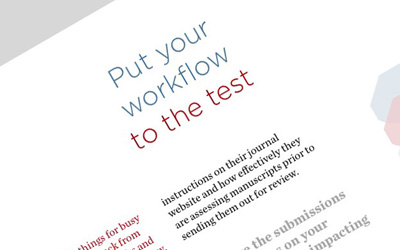
Just like that, another spring law review submission season is in the books!
As e-boards appointed in 2023 have been wrapping up article selection and preparing to pass the baton to their successors, team Scholastica has been reaching out to ask them to share some of the submission insights they gained during their tenure and their thoughts on what the future legal publishing landscape will hold for our advice from outgoing editors’ blog series. As in the last edition, we asked editors to weigh in on the below questions:
What are the most important submission criteria for law reviews to have authors follow, and why?
What are your top predictions for the future of the legal scholarship publishing cycle?
Here’s what they had to say (editors were given the option to remain anonymous).
We hope this blog series provides valuable insights you can apply during the next submission season! Many thanks to all of the outgoing editors who contributed!
What are the most important submission criteria for law reviews to have authors follow, and why?
Casey Nelson, University of Colorado Law Review
When analyzing authors’ submissions, the most important factor for editors is whether the work has a clear thesis. For editors, it’s important to trust yourself through this process and not assume that your lack of field-specific knowledge precludes you from understanding the article. A great article is not difficult to read or understand. For authors, it’s important to remember that your audience may not know as much about the field as you do, and offering a sufficient background will only widen the scope of your article’s reach.
Law review editor who asked to remain anonymous
The most important criterion is the assurance that the writing is in a substantially publishable state. It is not the job of the law review to do their research or writing for them.
Law review editor who asked to remain anonymous
Provide a detailed abstract that includes your thesis and how this paper will add to the literature or field. Often, the value of the article isn’t immediately apparent. If the reviewers aren’t familiar with the field, they might overlook something innovative or conclude that it isn’t novel. Reviewers will be more engaged and interested if they understand a paper’s significance right away.
Heather Fithian Romansky, Delaware Journal of Corporate Law
Proper citation, clarity of writing, and relevant/innovative topics. Our Staff and Board spend so much time carefully editing each article. Proper citation and clarity of writing help to ensure a smooth editing process. Relevance and innovation are important because the legal community needs resources to synthesize, critique, and expand its understanding of developing areas of law. Also, it increases the likelihood of citation, which is a good thing for authors and publications!
Elizabeth Kimble, Arkansas Journal for Social Change and Public Service
Every law review has to review submissions against their mission and select only those they feel are a true fit for both the review and the author.
Law review editor who asked to remain anonymous
For small reviews/journals, it’s essential to consider how much your team can reasonably handle each semester, which includes giving weight to whether or not the article needs significant or challenging changes before publication outside the normal scope of editing.
Carley Ruival, University of Richmond Public Interest Law Review
It’s really important to select articles for their quality rather than based on the perceived prestige of the author. At the end of the day, you want the articles your law review publishes to be clearly written and readily understandable to the average legal reader. That will maximize their impact and helpfully contribute to legal scholarship.
Law review editor who asked to remain anonymous
Law reviews should strive to make their selection criteria clear. For example, what kinds of authors they publish, length requirements, and formatting specifications. Authors for their part should only submit to journals that they prepared to accept an offer from. That is, if there’s no scenario in which you would accept an offer from a particular journal, you shouldn’t submit to it.
What are your top predictions for the future of the legal scholarship publishing cycle?
Law review editor who asked to remain anonymous
I think that AI will make the publishing cycle easier to navigate. However, I have already seen authors attempt to use AI, such as ChatGPT, as a “co-author” of sorts. That type of AI use lessens the uniqueness of the author’s work and makes it much harder for editorial staff to revise.
Heather Fithian Romansky, Delaware Journal of Corporate Law
I think AI will play a large part in article selection, the internal publication process, and grammar/spelling edits in the future. Editing will always require a set of human eyes, especially when it comes to citations. But AI will likely increase the efficiency of the selection and editing processes.
Law review editor who asked to remain anonymous
With schools opting out of US News Ranking, the law review rankings could become even more important or useless. I am not sure which it will be. But I think the rankings have been sort of ingrained already. People have preconceived notions of which journals are prestigious or will provide the best editing.
With the fall of the rankings, I am seeing smaller schools do more to get on the map and be seen as reputable and competitive institutions. But unfortunately, I think the way the submission cycles work, with people “gaming” offers, smaller schools will get left behind. They will spend their time reviewing submissions from authors who submit to every journal available. Or the submissions received will not be high enough quality, which can start a vicious cycle of poor articles year after year, leading to the journal’s demise. The submission cycle favors the traditional, elite, and robust.
Law review editor who asked to remain anonymous
It appears that there have been a lot more theoretical/social science and law crossovers lately. I predict that there will also be a significant increase in AI articles, given the number of symposiums that are talking about AI. I’m sure that selecting articles will no doubt use the same technology that we are discussing in our articles to also assist in choosing articles.
Carley Ruival, University of Richmond Public Interest Law Review
I think legal scholarship would ultimately benefit if a cap were imposed on the number of law reviews to which an author could submit a single article. This would eliminate the gamesmanship that authors sometimes engage in that involves submitting to as many journals as possible and using existing offers in an attempt to procure an offer to publish with a higher-ranked journal. Under a system with a cap, journals would waste far less time reviewing hundreds of articles and be able to more efficiently and thoroughly review articles where the authors are truly interested in publishing with that law review.
Elizabeth Kimble, Arkansas Journal for Social Change and Public Service
Everyone will say it, but AI will be a game changer. The ability to run whole articles through a language model and get an accurate summary will speed editorial board review, while impacting the possibility (and the catching therein) of plagiarism. Exciting times ahead!
Law review editor who asked to remain anonymous
The volume of empirical articles on offer continues to grow. They can add value and variety to law reviews but authors should strive to present their findings in ways that an average legal reader can comprehend, understanding that they may not be familiar with statistical analysis papers.
Want more submission season insights from past editors? Check out the 2021, 2022, and 2023 editions of Scholastica’s advice from outgoing law review editors blog series. Thanks again to all of the editors who took the time to share their experiences!








